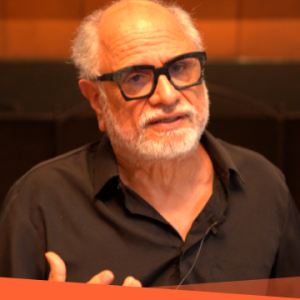
6 days ago
Homi K. Bhabha - The limits of global freedom: where is home in today's world?
To feel at home in today’s world is a very big demand because the sense of homelessness has always been a place of feeling at home and not feeling at home.
About Homi K. Bhabha
"I’m the Anne F. Rothenberg Professor of the Humanities at Harvard University. I work on questions of race and representation.
I work on the politics of affiliation, the literature and culture of groups who are minorities, the ethics of refugees. The questions of dignity in art, culture and politics are very important for me. My work as a whole is aimed towards understanding the present moment because the past refuses to die and the future refuses to wait to be born."
Why it’s hard to feel at home
To feel at home in today’s world is a very big demand because the sense of homelessness, looked at from a long period of historical reflection including our present moment, has always been a place of feeling at home and not feeling at home. Arendt, Freud, Heidegger – in all these cases, you feel both placed and displaced at the same time. It’s very difficult to think of a period where you feel at home because of these larger contradictions.
When you ask me to think about this question in relation to these large categories of globalisation, colonialism or anti-colonialism, I begin to think about the limits of this kind of nominalism. That’s how we get contained in a particular history. But these are very limited issues, partly because the question of periods and ages where historians feel at home – people are made to think that they were at home – are very complicated. It seems that transition is a much better discursive or analytic time frame than thinking of ages and periods which are all neatly labelled, and thinking we knew what the world was like.
Key Points
• The emergence of ethnonationalist groups today makes it difficult to feel at home and not feel displaced at the same time.
• New national territories and announcements of progress produce displaced people, such as migrants and minorities.
• Dignity is part of what you do, not who you are.
No comments yet. Be the first to say something!